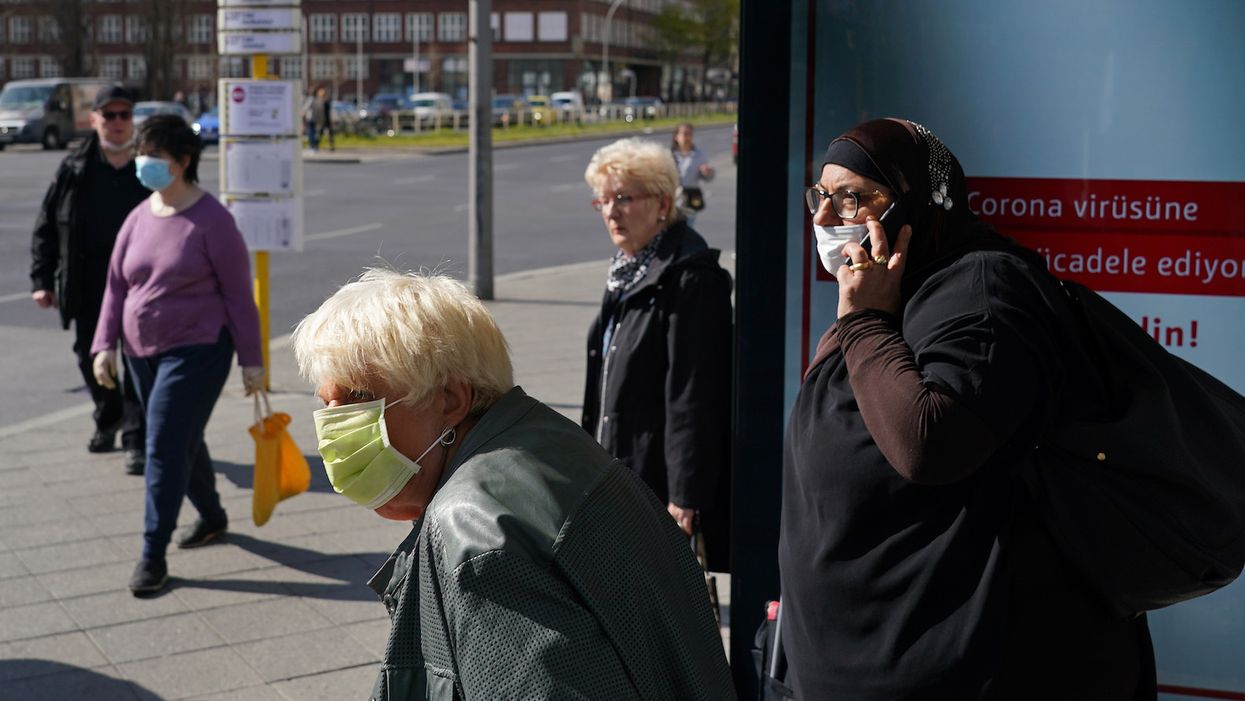
People, including some wearing protective face masks, wait at a bus stop Thursday in Berlin, Germany. (Photo by Sean Gallup/Getty Images)

Sounds like great news
The first results from a study by a German virologist show a significantly lower death rate from COVID-19 than the one that is widely reported, and may be a step toward easing restrictions on individuals and businesses going forward.
What's the study? The COVID-19 case cluster study was led by Dr. Hendrik Streeck of the Bonn University Institute of Virology. It was done in the Gangelt district of Heinsberg, one of the earliest places to experience the spread of the coronavirus in Germany.
About 1,000 people participated in the study by way of questionnaires, throat swabs, and blood tests to detect the presence of COVID-19 antibodies. These interim results are based on data from about 500 people.
What did they find? The study revealed significant spread throughout the district. The overall infection rate was 15%. Of those infected people, less than one-half of 1% died, indicating that currently reported mortality rates could be overestimating the fatality of the virus:
The overall infection rate (current infection or already gone through) was approximately 15%. The mortality rate (case fatality rate) based on the total number of infected people in the community of Gangelt is approx. 0.37% with the preliminary data from this study. The lethality currently calculated by the Johns-Hopkins University in Germany is 1.98% and is 5 times higher. The mortality rate based on the total population in Gangelt is currently 0.06%.
What does this mean? The percentage of the population that has already been infected and developed immunity means that crucial progress has been made toward herd immunity in this district. That will help slow the spread and further reduce the lethality of the virus.
As a result, Dr. Streeck believes the German population could be ready to move to the next phase of the coronavirus response protocol, which would be to relax social quarantines "while ensuring hygienic framework conditions and behavior."
(H/T: Bandera County Courier)